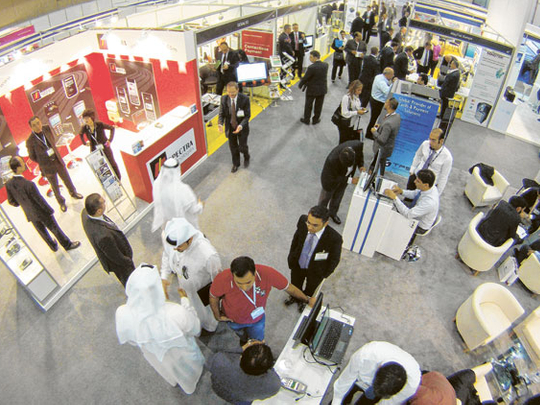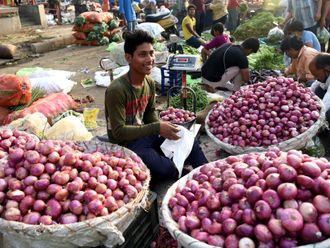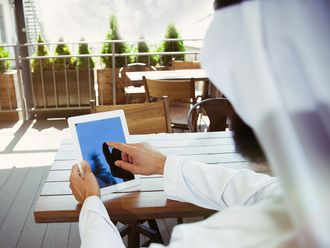
Abu Dhabi: The need to access basic financial services by users in developing countries will drive the short-term growth of active mobile money users globally to more than 200 million by 2013, according to the latest analysis from Juniper Research.
Currently well under 100 million people use these services.
Half a billion people worldwide will use their mobile devices as travel tickets on metros, subways and buses by 2015, according to Juniper forecast. This is over five times the number generated last year.
However, the UAE and the GCC are slightly behind in shifting from e-payment mode to m-payment, due to the lack of competition among mobile telecom operators.
The bulk of global remittance flow still uses traditional methods, drafts, telegraphic transfers and online payments. These methods are still dominant in the remittance business in the Middle East, where political changes are initiated through Facebook and social media gatherings.
"Technically we're not far at all" from enabling mobile phones with e-payment services, said Mehdi Al Akari, Area Sales Manager at S2M, a payment system solution provider based in Morocco.
Services such as international and domestic money transfers, the payment of bills, the payment of downloads, etc. are all technically available, he said.
"From a business stand-point it's not as easy because unless big agreements happen between the big players we are not going to have those services easily on our market," he said.
The big players, Al Akari said, would be the banks, telecom operators and the regulator.
The Abu Dhabi National Exhibition Centre is hosting the 11th edition of Cards Middle East 2011, a cards and payment exhibition, to discuss the market's end-to-end payment solutions and applications.
At the two-day event which brings together local leaders from the banking, telecom and government sectors, Gulf News raised the question of where the industry is from providing a full range of e-payment services over the mobile phone.
Morten Hofstad, regional director of Luup, a mobile payments solutions provider, said that this year there's a focus on the mobile phone because "the mobile has been picking up as a tool to do domestic transfers particularly in countries in Africa and in Asia."
"When it comes to international money transfer it can be easily done as with domestic transfer, but it's a lot of regulatory issues that you need to put in," he said.
But until those regulatory laws are put in place, Luup is working with Workers Equity Holding, a payroll processor; to mobile enable the payroll cards of workers. The mobile enabled phone will then allows the worker and holder of the payroll card to transfer money back home via an SMS sent from his phone.
Hofstad said that once their service is launched this year it will be the first to offer person-to-person international money transfer via the mobile phone.
However, Hofstad said that much of the progress of the mobile e-payment services is very much related to consumer behaviour. "In a country where you have a lot of cash and a lot of cards, why hassle with a mobile? It's also related ot consumer behaviour — what is fitting where at what time. We need to find a good service that gives the user and man on the street the benefits by mobile enabling these cards."
Thani Abdullah Al Zaffin, Director General and Board Member of emaratech, a national company specialised in the application of IDs, told Gulf News that it's very likely for different cards to be replaced by the mobile phone as well as be unified under one card for different usage.
"The national ID card is today capable if the RTA allows it to be used instead of the nol [metro card] it can be.
"It's nothing but integrating the digital ID on the card on the system to allow the entrance of usage of the Metro," he said.
"The simple difference between a card and a mobile is the information that is on the card," said Tarek Yousuf, Chief Operating Officer at emaratech.
"With the technology of Near Field Communication (NFC) you can enable the mobile for services similar to the ID cards."
Emaratech is currently doing the research and development of coming up with a solution that is cost effective and applicable to allow users to use their mobile phones to access the e-gate at the airports.
Mobile payments will open the door for a whole set of new services, Al Akari said.
"Imagine you can order something, to buy something, send money to someone — it's mainly about bringing the services to one device that one has in his pocket."












